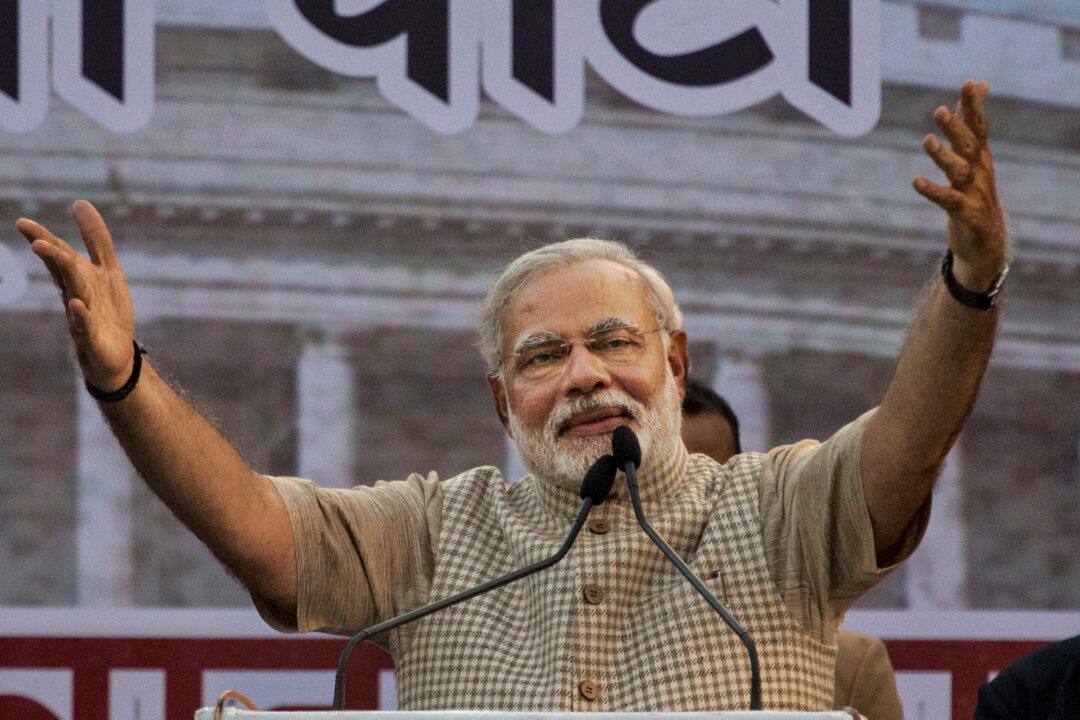The dynamics of power in South Asia rely to a great extent on its largest democracy: India. With a new stable government at the helm, the power and security dynamics in South Asia are bound to change if the government fulfills its promise to make India corruption-free and territorially strong.
The strength of a country is affected by how it is perceived globally, particularly by the countries it shares borders with. Many view India as a country plagued by corruption and inefficient government.
For decades, India has been unable to resolve major border disputes with its neighbors. India claims Pakistan illegally occupies 30,000 square miles of its territory, and China illegally occupies another 16,000 square miles. Combined, that’s the size of Pennsylvania. India also administers significant territory claimed by those countries.
Narendra Modi, the new Indian Prime Minister whose campaign strategies made more news than any political campaign ever in India, came to power on promises of development, freedom from corruption and enhanced national security.
“If Modi is able to deliver on his many promises, then the contours of India as a power, the realization of India’s potential will accelerate. If this happens, then again—as Modi has very clearly stressed—that if India is strong, her neighbors will change,” said Dr. Ajai Sahni, Executive Director of the Institute for Conflict Management and South Asia Terrorism Portal, New Delhi.
Within weeks of coming to power, the Narendra Modi government has decided to fast-track roads and strategic defense projects along the border with China.
Modi also has ambitious plans to visit seven foreign countries in the next six months, clearly trying to leave a message that the new government means business.
A Powerful New Government
The political dynamics of India after this year’s national election are very different from what existed in previous decades.
Since 1980, no Indian political party had a clear electoral majority to rule the country from New Delhi. This led to coalition governments—like-minded parties forming alliances to rule the country. This was popularly known as coalition era of Indian politics.
The coalition era was accompanied by corruption and indecisiveness both at the national level and in terms of foreign affairs.
But now a single party—the Bharatiya Janata Party—has a clear majority. This means the current government has considerably more power to make decisions.
“People are seeing this government very differently from preceding governments. It has a mandate which is unprecedented in the last three decades,” said Sahni.
According to Sahni, government projects in the past had been plagued with corruption and money laundering.
“The entire projects have been designed simply to facilitate looting of [the treasury] and public wealth,” he said.
According to an article published last year by the Harvard University Instituted of Politics, 50 percent of the government money meant for welfare programs and subsidies ends up in the pockets of politicians, bureaucrats and influential businessmen.
Under these circumstances, Modi’s ascension to power is even more significant because he’s perceived as having a clean financial track record as the elected head of Gujarat, a state he ruled for 14 years before becoming the prime minister.
“Even his worst critics have not accused him of any financial impropriety. So if you have a man who is financially incorruptible right on top of the system, then it becomes more and more difficult people below to engage in corruption,” said Sahni.
According to Sahni, if India is able to eliminate corruption to a greater extent, it can be transformed. It would create the image of a strong nation in the eyes of India’s neighbors.
“If the equation of power between India and Pakistan or India, Pakistan, China as a triad remain roughly what they are, then our relationships will remain what they are,” said Sahni. “If the equation of power is altered dramatically in favor of one or the other in the region, the relations will automatically begin to shift. And this really what I would say is the potential of the promise of our future.”





